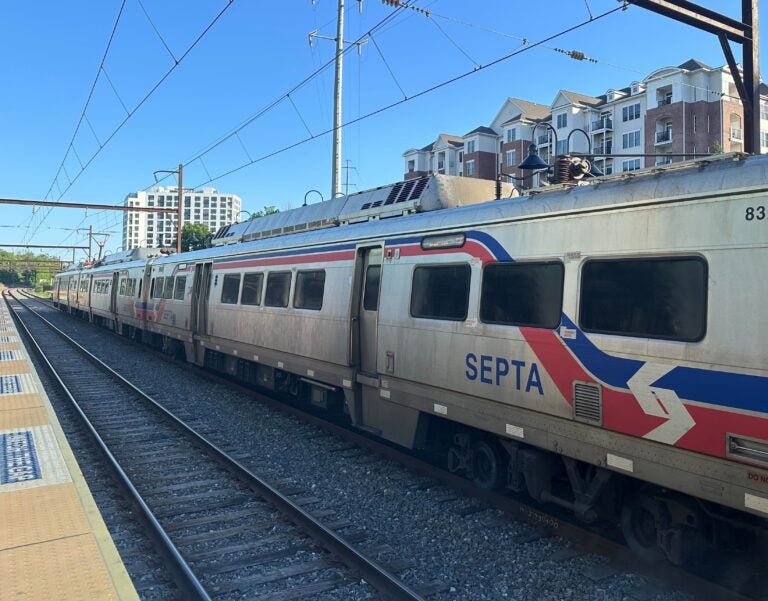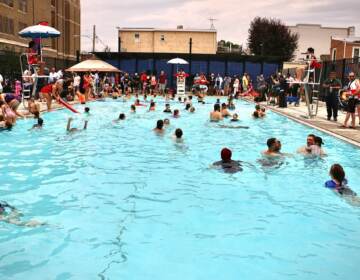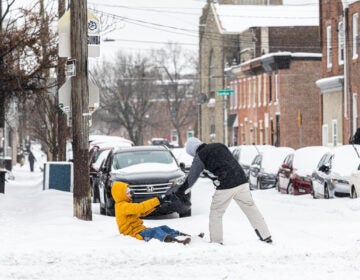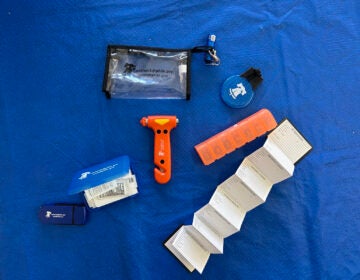SEPTA says heat wave precautions could mean schedule delays
Extreme heat could impact rail infrastructure. SEPTA says it slows down trains to prevent failures.

A train along the Norristown/Manayunk SEPTA Regional Rail line rolls through the Conshohocken station on a weekday morning. (Kristen Mosbrucker-Garza/WHYY)
This story is part of the WHYY News Climate Desk, bringing you news and solutions for our changing region.
From the Poconos to the Jersey Shore to the mouth of the Delaware Bay, what do you want to know about climate change? What would you like us to cover? Get in touch.
If you’ve noticed that the regional trains, subways and trolleys are running slower in the heat, you’re right. Transit agency officials say they slow down the rail lines to prevent a major breakdown.
SEPTA spokesperson Andrew Busch said the power lines that provide electricity to the vehicles could fail if taxed too much in the hot weather – especially when temperatures top 90 degrees.
“The procedure includes lowering the top speeds of regional rail, including trolleys, and also the two subway lines,” Busch said.
Busch added the slowdown is designed to “minimize the chances for damage to our infrastructure, including tracks and overhead wires.”The extreme heat can cause overhead wires to sag and train rails to warp.
SEPTA also has extra maintenance crews on hand to address issues such as losing air conditioning, which occurred on a Paoli-Thorndale inbound train Wednesday morning.
Busch said the speed limit is cut by between 5 and 10 miles per hour.
“That’s an adjustment that is really barely noticeable to customers,” Busch said. “You’re running slightly a little slower, a little bit behind schedule possibly, but it avoids those bigger service outages.”
Crews are also walking the tracks day and night, according to Busch. “They’re checking for any kind of irregularities. If they spot something, they’re getting on it right away to repair it.”
The transit agency also has to work with Amtrak because many of the regional rail routes use the national passenger rail service’s tracks. “We do coordinate with Amtrak, and they have similar protocols in place,” Busch said. If there’s going to be a problem, most often their trains are going to get priority through those areas.
Once the heat wave breaks, SEPTA officials said they will go over the work they did to keep the system up and running, and come up with an action plan for the next hot spell.
WHYY is your source for fact-based, in-depth journalism and information. As a nonprofit organization, we rely on financial support from readers like you. Please give today.







